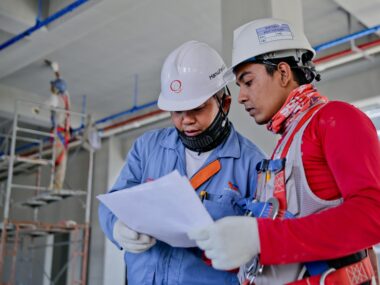Skilled Jobs in Canada with Visa Sponsorship
Introduction
Skilled Jobs in Canada with Visa Sponsorship! Canada is globally recognized as one of the top destinations for skilled foreign workers, offering abundant job opportunities across various sectors. With its stable economy, multicultural society, and high quality of life, Canada continues to attract professionals from around the world. The country’s immigration-friendly policies further make it easier for skilled workers to secure employment and eventually settle in Canada through visa sponsorship programs. Taxi-Drivers in Canada with Visa Sponsorship
As the Canadian population ages and industries grow, there is a rising demand for skilled labor. Employers are actively seeking international talent to fill skill shortages in healthcare, information technology, engineering, and skilled trades. The Canadian government has implemented programs like the Express Entry and Provincial Nominee Program (PNP) to facilitate this process, allowing Canadian companies to sponsor foreign talent for permanent or temporary employment.
Understanding how to navigate the job market, meeting eligibility criteria, and identifying sectors with high demand are critical steps for any foreign professional aiming to work in Canada. This guide provides a comprehensive overview of the types of skilled jobs available with visa sponsorship, the application process, requirements, salary expectations, and platforms to find these opportunities. Study in USA for Free 2025
Entry Level Skilled Jobs in Canada with Visa Sponsorship
Canada doesn’t only welcome highly experienced professionals; it also opens its doors to entry-level skilled workers who possess essential qualifications or training. These positions often provide a pathway to career advancement and permanent residency. Entry-level skilled jobs include trades, support roles in healthcare, junior tech positions, and hospitality-related roles that are classified under NOC TEER categories 1 to 3. Factory Workers in Australia with Visa Sponsorship
For example, truck drivers, cooks, and healthcare assistants are often in high demand across Canadian provinces. While they may not require university degrees, they need certifications, relevant experience, or training. Many employers are willing to provide visa sponsorship, especially in regions with labor shortages.
In the construction industry, roles such as general laborers, carpentry assistants, and apprentice electricians serve as entry points. Similarly, healthcare support roles such as personal support workers (PSWs) and nursing aides are sought after in provinces like Ontario and British Columbia. These roles often come with training support and lead to long-term positions. Jobs in Germany with Visa Sponsorship
IT companies are also known to offer entry-level roles like junior software developers or helpdesk technicians to new graduates or individuals with coding bootcamp experience. Employers in this sector frequently offer support for immigration paperwork, especially under the Global Talent Stream. Entry-level opportunities are a smart way for newcomers to integrate into the Canadian workforce. Visa Sponsorship Jobs in Canada 2025
Types of Skilled Jobs and Sector with Visa Sponsorship in Canada
Canada’s skilled labor market spans multiple sectors, with employers in both public and private domains seeking foreign talent. Below are key sectors and job roles with high demand for skilled workers with visa sponsorship opportunities: Mortgages in Finland with a Small Down Payment
1. Healthcare:
- Registered Nurses
- Medical Technologists
- Personal Support Workers
- Licensed Practical Nurses (LPNs)
2. Information Technology (IT):
- Software Developers
- Network Engineers
- Cybersecurity Specialists
- Data Analysts
3. Engineering:
- Civil Engineers
- Mechanical Engineers
- Electrical Engineers
- Project Managers
4. Skilled Trades:
- Electricians
- Plumbers
- Welders
- Carpenters
5. Hospitality and Tourism:
- Chefs
- Bakers
- Hotel Managers
- Food Service Supervisors
6. Transportation and Logistics:
- Truck Drivers
- Forklift Operators
- Delivery Coordinators
7. Agriculture:
- Farm Supervisors
- Equipment Operators
- Harvesting Labourers
These jobs are often aligned with specific immigration streams that facilitate employer sponsorship, including Temporary Foreign Worker Program (TFWP), Atlantic Immigration Program (AIP), and employer-specific LMIA-supported work permits.
Requirements for Skilled Jobs in Canada with Visa Sponsorship Employments
To qualify for skilled jobs with visa sponsorship in Canada, applicants must meet certain criteria. While requirements vary depending on the position and employer, common prerequisites include: Jobs in the UK with Visa Sponsorship
- Educational Qualifications: A diploma, degree, or relevant trade certification is essential, depending on the role.
- Work Experience: At least 1–3 years of relevant experience is often required.
- Language Proficiency: IELTS or CELPIP results proving English or French proficiency. Most employers require CLB 5–7 levels.
- Credential Recognition: For regulated professions (e.g., nurses, electricians), credential assessment through bodies like WES, ICAS, or provincial authorities may be needed.
- Work Permit Eligibility: Applicants must qualify for a work permit via LMIA or an eligible immigration stream. Visa Sponsorship Jobs in Thailand
- Adaptability: Soft skills such as communication, team collaboration, and adaptability to Canadian workplace culture are valued.
Employers offering sponsorship may assist in the visa process but typically expect candidates to fulfill core qualification benchmarks before extending offers.
Salary Scale for Immigrants
| Job Title | Average Annual Salary (CAD) |
|---|---|
| Registered Nurse | $65,000 – $90,000 |
| Software Developer | $70,000 – $110,000 |
| Civil Engineer | $68,000 – $95,000 |
| Truck Driver | $55,000 – $75,000 |
| Electrician | $58,000 – $80,000 |
| Carpenter | $50,000 – $70,000 |
| Chef | $48,000 – $65,000 |
| Hotel Manager | $55,000 – $85,000 |
| Farm Supervisor | $45,000 – $60,000 |
| Data Analyst | $65,000 – $95,000 |
These salaries can vary by province, employer, and the applicant’s experience level.
Application Requirements and Documents
When applying for skilled jobs in Canada with visa sponsorship, preparing a complete application package is essential. Required documents typically include: Jobs in Poland with Visa Sponsorship
- Updated Resume: Tailored to Canadian standards (reverse-chronological format).
- Cover Letter: Personalized for each job application, highlighting visa eligibility.
- Educational Certificates: Degrees, diplomas, or trade certifications.
- Language Test Results: IELTS or CELPIP score reports.
- Reference Letters: From past employers, especially on official letterhead.
- Credential Assessment Reports: (if applicable) via WES, ICAS, etc.
- Police Clearance Certificate: Some employers may request this.
- Medical Examination Results: Particularly for healthcare or childcare roles.
- Passport Copy: Including biodata and previous visa stamps.
- Job Offer or Employment Letter: Once sponsorship is secured.
Ensure all documents are translated into English or French if originally in another language.
Employment Websites to Find Skilled Jobs in Canada with Visa Sponsorship
Finding visa-sponsored skilled jobs requires using reliable job platforms. Here are the top employment websites where international job seekers can find Canadian employers open to sponsorship: Jobs in Mexico with Visa Sponsorship
- Job Bank Canada – www.jobbank.gc.ca
- Indeed Canada – www.indeed.ca
- LinkedIn Jobs – www.linkedin.com/jobs
- Monster Canada – www.monster.ca
- Workopolis – www.workopolis.com
- CanadaVisa Job Search Tool – www.canadavisa.com/jobs
- Eluta.ca – www.eluta.ca
- Provincial Nominee Program Portals – Each province (e.g., Ontario, British Columbia) has job boards with employer listings.
- Hire Immigrants Canada – www.hireimmigrants.ca
Be sure to filter jobs by keywords like “visa sponsorship available” or “LMIA supported” for better targeting. Sweden Companies That Sponsor Work Visa
FAQ about Skilled Jobs in Canada with Visa Sponsorship
1. Can I apply for a skilled job in Canada without being in Canada?
Yes. Many employers conduct virtual interviews and sponsor qualified candidates who are overseas. Jobs in Switzerland with Visa Sponsorship
2. What is an LMIA and why is it important?
A Labour Market Impact Assessment (LMIA) is a document showing that an employer needs a foreign worker and no Canadian worker is available. It’s often required for visa sponsorship.
3. Are there free immigration programs for skilled workers?
Programs like Express Entry don’t charge for job offers, but official government fees apply. Beware of scams asking for upfront job application fees.
4. How long does the visa sponsorship process take?
It can take 2 to 6 months depending on the visa type, employer readiness, and documentation. UK Companies Hiring International Graduates
5. Do I need Canadian work experience to get a job?
Not necessarily. While helpful, many employers hire based on international experience if skills match job needs.
Conclusion on Skilled Jobs in Canada with Visa Sponsorship
Skilled jobs in Canada with visa sponsorship represent a golden opportunity for international professionals looking to build a secure and prosperous future. The country’s demand for qualified workers across sectors like healthcare, IT, trades, and hospitality continues to rise. By understanding the application requirements, targeting high-demand occupations, and using the right platforms, foreign job seekers can position themselves effectively in the Canadian job market. Hotel Jobs in UK for Foreigners with Visa Sponsorship
Whether you’re a software developer in India, a nurse in the Philippines, or a carpenter in Nigeria, Canada offers a path forward. Employers are increasingly open to hiring foreign workers, and government programs support this effort. With the right approach, credentials, and persistence, your Canadian dream job with visa sponsorship is well within reach.













1 comment
I loved even more than you will get done right here. The picture is nice, and your writing is stylish, but you seem to be rushing through it, and I think you should give it again soon. I’ll probably do that again and again if you protect this walk.